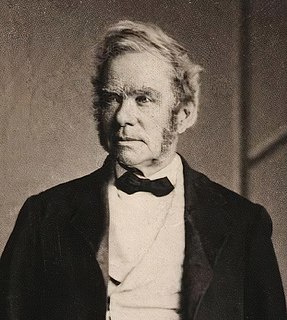A Quote by Thomas Jefferson
The equal rights of man and the happiness of every individual are now acknowledged to be the only legitimate objects of government.
Quote Topics
Related Quotes
First there is the democratic idea: that all men are endowed by their creator with certain natural rights; that these rights are alienable only by the possessor thereof; that they are equal in men; that government is to organize these natural, unalienable and equal rights into institutions designed for the good of the governed, and therefore government is to be of all the people, by all the people, and for all the people. Here government is development, not exploitation.
Norms appearing in the form of law entitle actors to exercise their rights or liberties. However, one cannot determine which of these laws are legitimate simply by looking at the form of individual rights. Only by bringing in the discourse principle can one show that each person is owed a right to the greatest possible measure of equal liberties that are mutually compatible.
Individualism regards man - every man - as an independent, sovereign entity who possesses an inalienable right to his own life, a right derived from his nature as a rational being. Individualism holds that a civilized society, or any form of association, cooperation or peaceful co-existence among men, can be achieved only on the basis of the recognition of individual rights - and that a group, as such, has no rights other than the individual rights of its members.
Potentially, a government is the most dangerous threat to man's rights; it holds a legal monopoly on the use of physical force against legally disarmed victims. When unlimited and unrestricted by individual rights, a government is man's deadliest enemy. It is not as protection against private actions, but against governmental actions that the Bill of Rights was written.
The Declaration [of Independence] was not a protest against government, but against the excess of government. It prescribed the proper role of government, to secure the rights of individuals and to effect their safety and happiness. In modern society, no individual can do this alone. So government is not a necessary evil but a necessary good.
Any group or "collective," large or small, is only a number of individuals. A group can have no rights other than the rights of its individual members. In a free society, the "rights" of any group are derived from the rights of its members through their voluntary individual choice and contractual agreement, and are merely the application of these individual rights to a specific undertaking... A group, as such, has no rights.
Where, after all, do universal human rights begin? In small places, close to home - so close and so small that they cannot be seen on any maps of the world ... Such are the places where every man, woman and child seeks equal justice, equal opportunity, equal dignity without discrimination. Unless these rights have meaning there, they have little meaning anywhere.
Upon this point all speculative politicians will agree, that the happiness of society is the end of government, as all divines and moral philosophers will agree that the happiness of the individual is the end of man. From this principle it will follow that the form of government which communicates ease, comfort, security, or, in one word, happiness, to the greatest numbers of persons, and in the greatest degree, is the best. All sober inquirers after truth, ancient and modern, pagan and Christian, have declared that the happiness of man, as well as his dignity, consists in virtue.




























